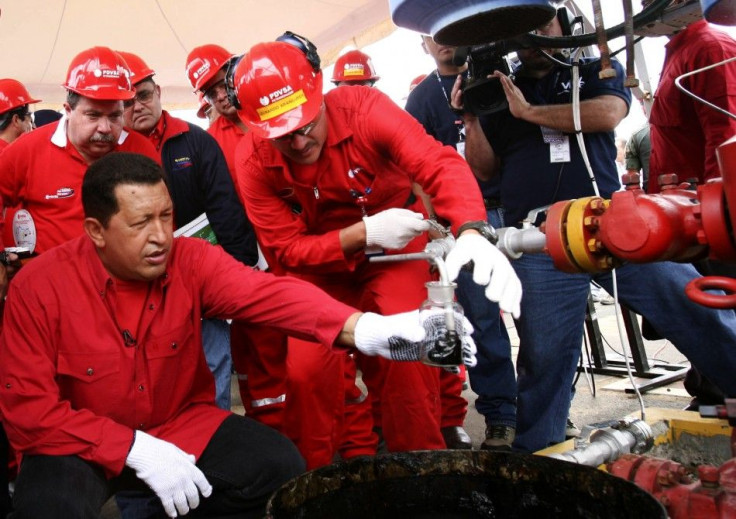ExxonMobil Not Finished With Venezuelan Arbitration; Could Win $7 Billion

ExxonMobil has not thrown in the towel in a controversial aribitration in Venezuela over seizure of its assets, in which the International Chamber of Commerce ruled against it in favor of the government of President Hugo Chavez.
Irving, Tex.-based Exxon Mobil is scheduled to receive $907.6 million from Venezuela's state-owned oil producer PDVSA in compensation for the 2007 seizure of the U.S. company's oil wells and refineries. A certain portion was already credited in the form of debt relief and the remaining $746.9 million could be paid out in the form of cash, further debt relief, or $305 million held in U.S. courts, said Patrick McGinn, a spokesperson for ExxonMobil.
Chavez's government seized the company's assets when it nationalized the country's oil industry. Caracas offered ExxonMobil the book value of its seized assets in the Orinoco River Basin while ExxonMobil demanded more. Government officials said the company's demands were excessive. An impasse ensued, and for years the two have been locked in arbitration.
This ICC arbitration award represents recovery on a limited, contractual liability of PDVSA that was provided for in the Cerro Negro project agreement. Contract sanctity and respect for the rule of law are core principles used to manage our business over the long term, McGinn said in a statement.
ExxonMobil originally asked for $12 billion, but has since lowered its compensation request to $7 billion.
The arbitration is being hailed as a victory for the Chavez government. PDVSA, on its Web site, said the arbitration is consistent with what Venezuela was initially ready to offer.
After four years of arbitration, the actual amount determined by the ICC Court is, in fact, less than the exorbitant sum originally claimed, read the statement.
Fedel Gheit, an oil analyst with Oppenheimer, told International Business Times the arbitration is a victory for the Chavez government because it is on the low end of the scale.
That being said, the arbitration sum makes it so that ExxonMobil essentially breaks even on its investment in the country.
To my recollection, that is the exact book value of the asset, Gheit told IBTimes.
But book value and market value are two very different things, and the the company's assets could very well be calculated in billions of dollars, he said. With oil prices higher now than they were previously when ExxonMobil first entered the country, Gheit said he suspects the market vaule of the company's assets could have quadrupled beyond its book value.
The settlement, in a way, goes against the whole principle of investing - one does not invest without the intention of collecting on returns.
It's unfortunate in a way because it makes it difficult for companies to conduct business, Gheit said.
ExxonMobil could receive more in compensation come February when a larger arbitration hearing between the two is argued in the International Center for Settlement of Investment Disputes for the fair market value of the company's assets in the country, said McGinn.
We recognize Venezuela's legal right to expropriate assets subject to compensation at fair market value, McGinn said.
Venezuela's state oil company PDVSA, said if ExxonMobil continues its arbitration, it will take all necessary measures to protect itself.
ExxonMobil's shares rose $1.56 to $86.32 in midday trading. They rose nearly 16 percent in 2011.
© Copyright IBTimes 2025. All rights reserved.





















